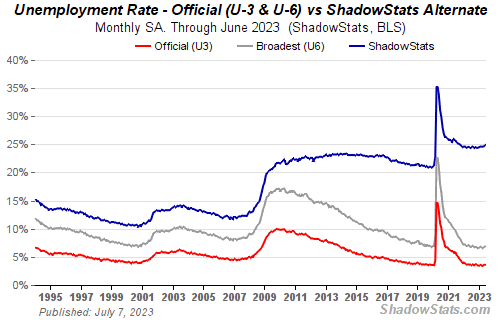Originally published at The Benfell Blog. Please leave any comments there.
The unfortunate part about leaving Facebook is that I will be losing contact with some very interesting people. I was, for instance, astonished at the quality of response offered to someone who protested that veganism was somehow disrespectful of native peoples; in this argument, native people understand themselves as part of the food chain (which, as our corpses rot in the ground or our ashes nurture the Earth, remains true whether we eat animals or not) and to assert a moral preference for a vegan diet is to imply that native people were wrong.
I had responded that an animal rights perspective asserts that animals have rights equal to humans, that just as we would regard it as wrong if Indians engaged in cannibalism, we can regard as wrong for them to eat meat–as vegans do for anyone else. Just as female genital mutilation is unquestionably wrong, regardless of cultural heritage, it is not racism to refuse Japanese or native peoples permission to hunt whales or club seals. And when she argued that we are all animals and part of the food chain, insisting that veganism constitutes an accusation against native people, I responded that an important difference between humans and animals is that we have a choice, that we can choose to do a right thing.
This conversation had occurred on a third person’s page, one whom I hear is now in a hospital, having been seriously injured at an immigration rights rally. She pointed out that my interlocutor was romanticizing native people and seeing things in black and white. In essence, to see veganism as an attack on native people is to assert that they were entirely correct–in fact, perfect humans–in everything they did and therefore to cast any attack against them as the antithesis of perfection.
Because this person’s injuries may be life threatening, I may lose contact with her anyway. But then I see from someone else today that they are drawing a parallel between Nakba, the catastrophe, whose anniversary was just yesterday, and Arizona’s fascism, expressed both in the recent “illegal” immigration law and in a law that forbids anyone with an accent from teaching English and forbids ethnic studies courses. This point reaches into U.S. history.
Israel has pursued an aggressive settlements policy in occupied Palestinian territory that has stolen land and displaced people. Indeed, even at its founding, commemorated as Nakba, it displaced Palestinians to make space for a Jewish state. Over sixty years later, many of these people are still refugees, dependent on United Nations aid. Israel has deprived Palestinians of farmland and, in a relatively dry part of the world, deprived them of water. It has severely constrained Palestinian economic development. While Israel justifies its actions by asserting that it is a country under attack, the fact remains that it provokes these attacks not only by expelling people but through its brutal treatment of people who remain under occupation.
This somewhat parallels the Mexican-American War, the outcome of which was to deprive Mexico of about half its territory. Many Mexicans, according to Manuel Gonzales in Mexicanos: A History of Mexicans in the United States, remained in the occupied and annexed territory. The elites of Canada, the United States, and Mexico have adopted the North American Free Trade Agreement (NAFTA), which has devastated small farms in Mexico, depriving people of their livelihoods, compelling them to come north to seek employment as easily exploitable laborers often willing to work in deplorable conditions for less than minimum wage.
It is thus possible to understand the United States’ support for Israel as a defense of its own history. If Israel is wrong, so too is the U.S.
Glenda Laws has written, in an essay I find in Thomas Shapiro’s Great Divides: Readings on Social Inequality in the United States, that as opponents of immigration see it,
immigrants have two important potential impacts on local labor markets. First, wage rates are driven down. Second, immigrants are employed in jobs that would otherwise be filled by unskilled or low-skilled U.S.-born workers. For immigrants who had been in the United States less than five years in 1990, average wages were almost 32 percent below those of U.S.-born workers. It may seem unclear why immigrants should be castigated for the unfairness of this situation if we assume that employers should pay fair and reasonable wages to all workers, regardless of their immigrant status.
But of course employers don’t “pay fair and reasonable wages to all workers, regardless of their immigrant status.” Instead, immigrants’ desperation and consequent acceptance of ill-treatment is leverage against people born in the United States who seek to keep their own jobs, that all of us must accept lower wages and more abusive conditions, in order to be “competitive.”
The part I never quite understand, that indeed Laws suggests is “unclear,” is why so many blame immigrants rather than the capitalists who exploit us all, who use “competition” principally to increase their own profits, to set themselves apart as an exclusive elite by widening the gap between rich and poor. I never quite understand why so many of us are so determined to view Mexicans, rather than capitalists, as a threat that we kill Mexicans in the desert, making an already dangerous trip even more so by erecting walls and defenses at a border that cuts across land that really isn’t even ours to begin with.
Not to mention that the land we didn’t steal from Mexicans, we stole from Indians, and in some cases both. But Arizona’s immigration law, under consideration in ten other states, simply seeks to deny this reality. I can’t sum up this hypocrisy any better than in the cartoon that Nicole Belle, on Crooks and Liars, points to:

That cartoon, too, apparently appears originally on Facebook. It is now only two days until I leave.




